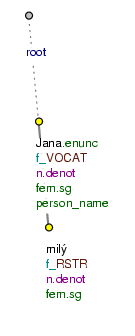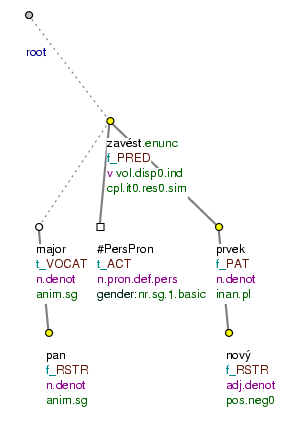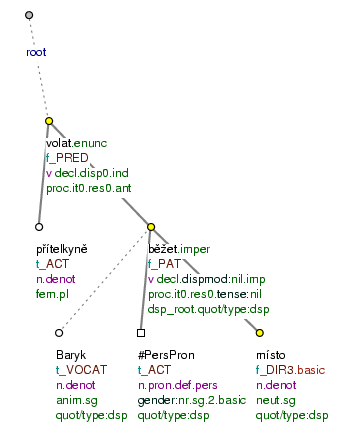- Definition of the
VOCATfunctor -
The functor
VOCATis a functor for the effective root of an independent vocative clause.
The VOCAT functor is assigned to the node representing the governing noun (in the vocative case) of an independent vocative clause, even in those cases when the vocative clause is a parenthesis. Independent vocative clauses are defined in Section 4.2, "Non-verbal clauses". The same section also describes the possible forms of the governing noun, which is represented by a node with the VOCAT functor.
Examples:
Milá Jano.VOCAT ! (=lit. Dear Jane!) Fig. 7.3
Pane majore.VOCAT , hodlám zavést nové prvky. (=lit. Sir major, I_intend to_introduce new elements.) Fig. 7.4
"Baryku.VOCAT , běž na místo, " volala přítelkyně. (="Baryk, go to your place", called my girlfriend.) Fig. 7.5
For more examples see Section 4.2, "Non-verbal clauses".


